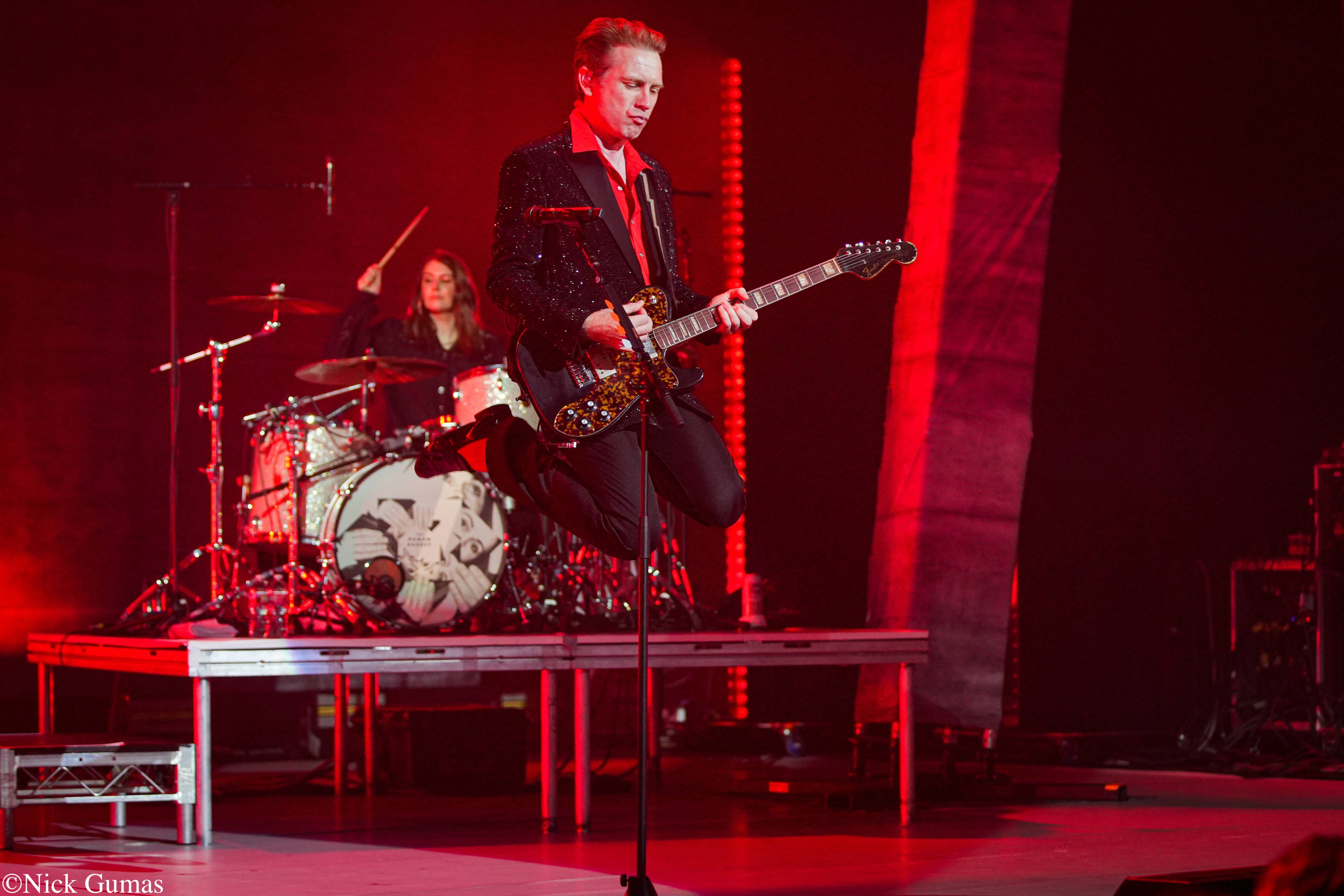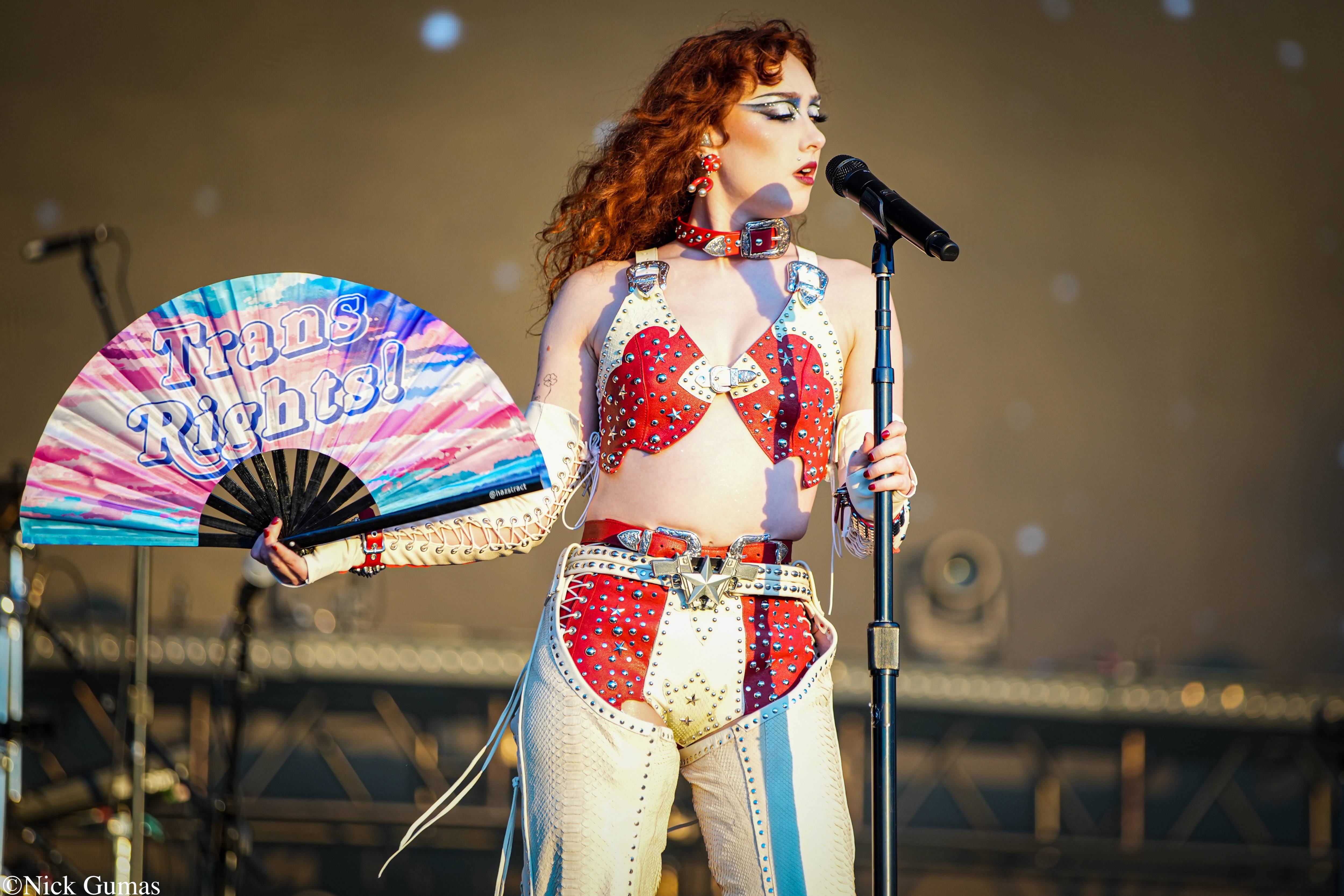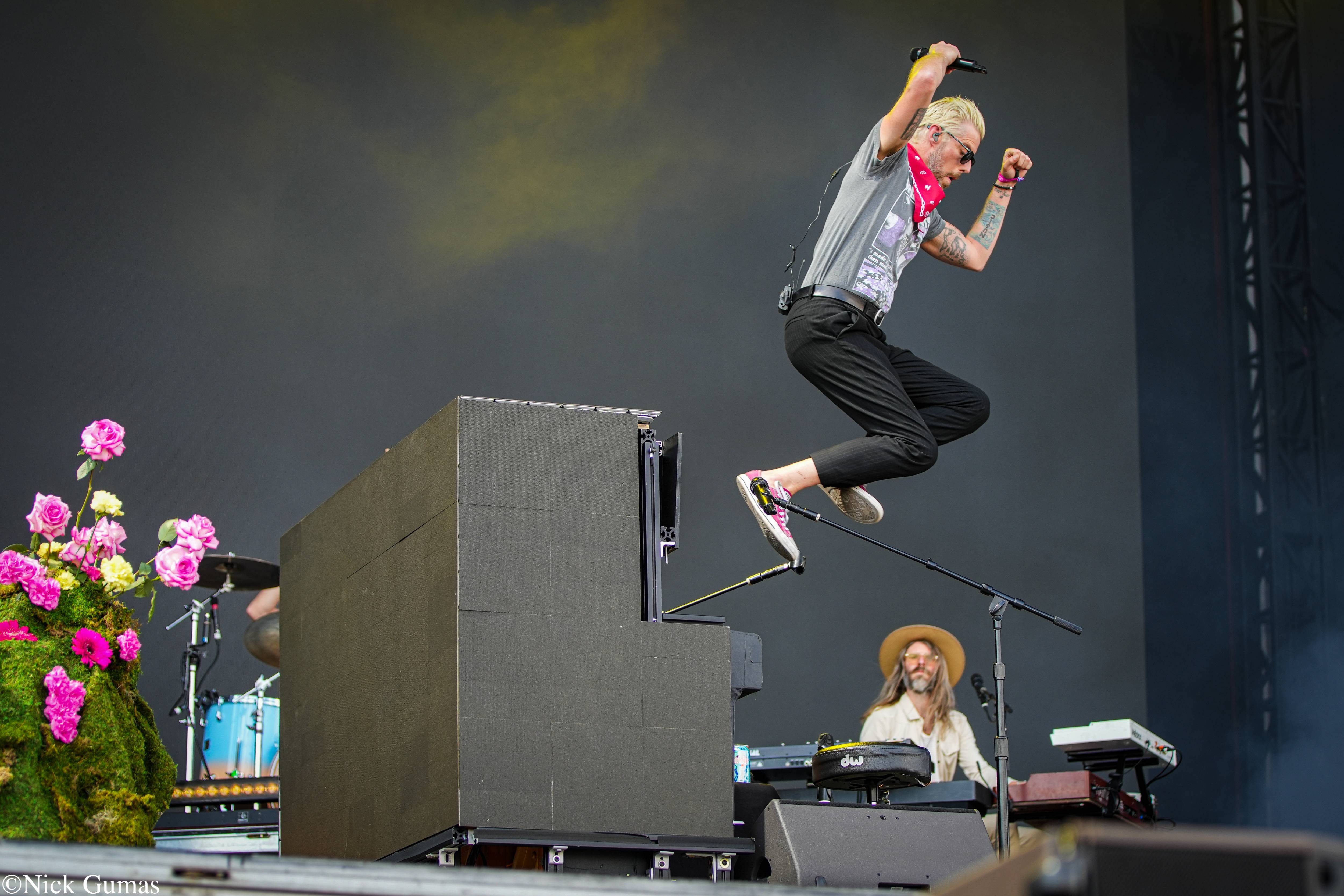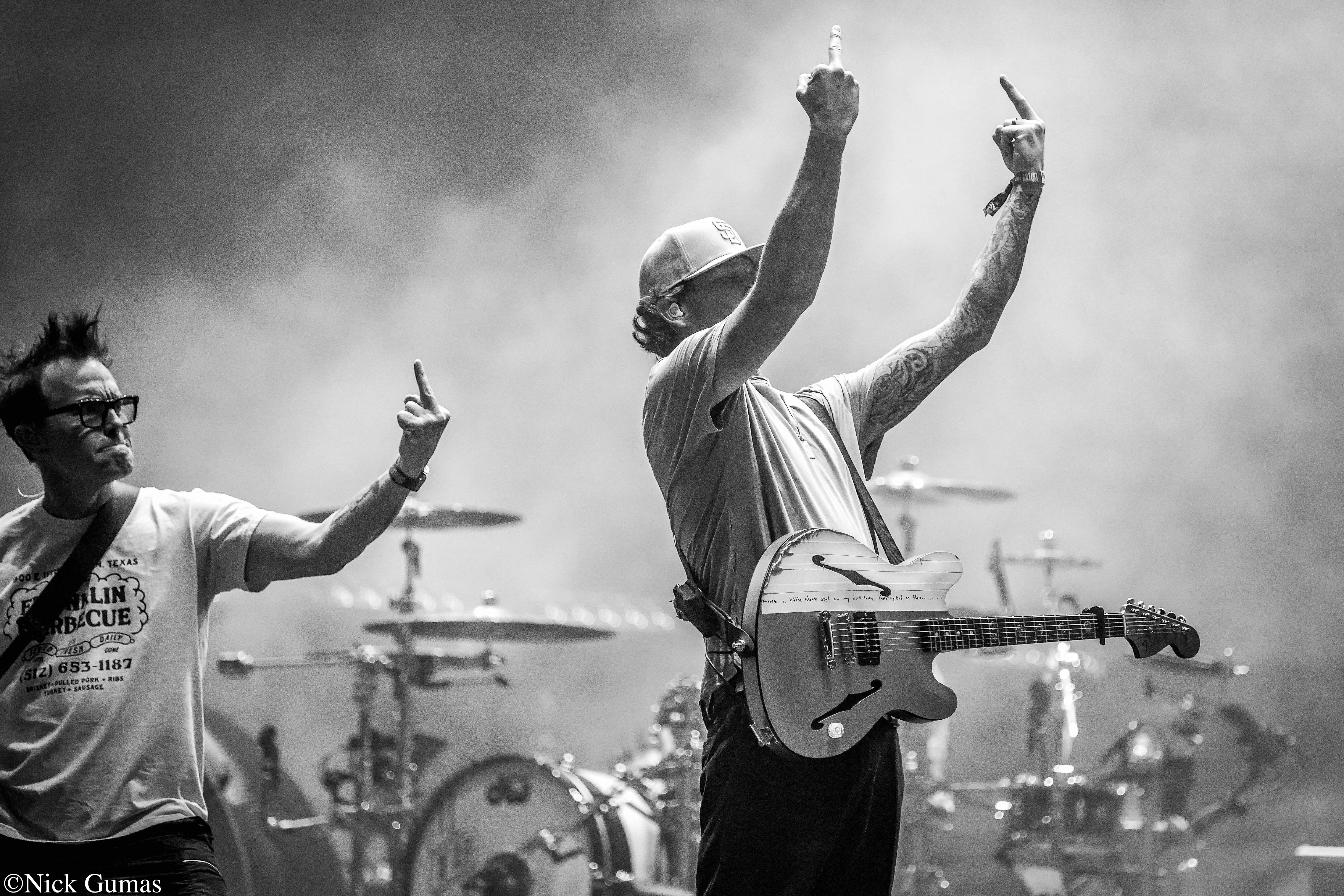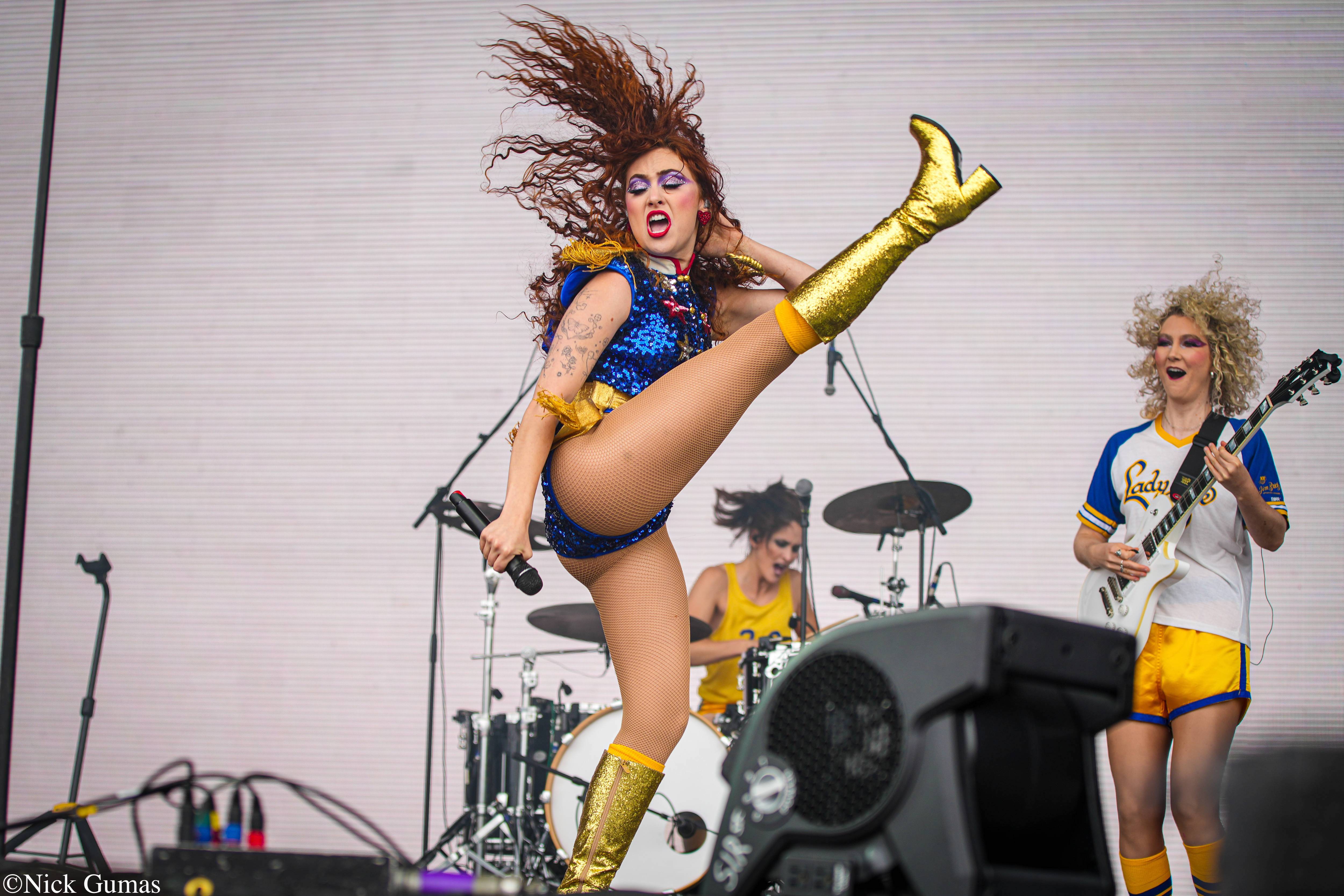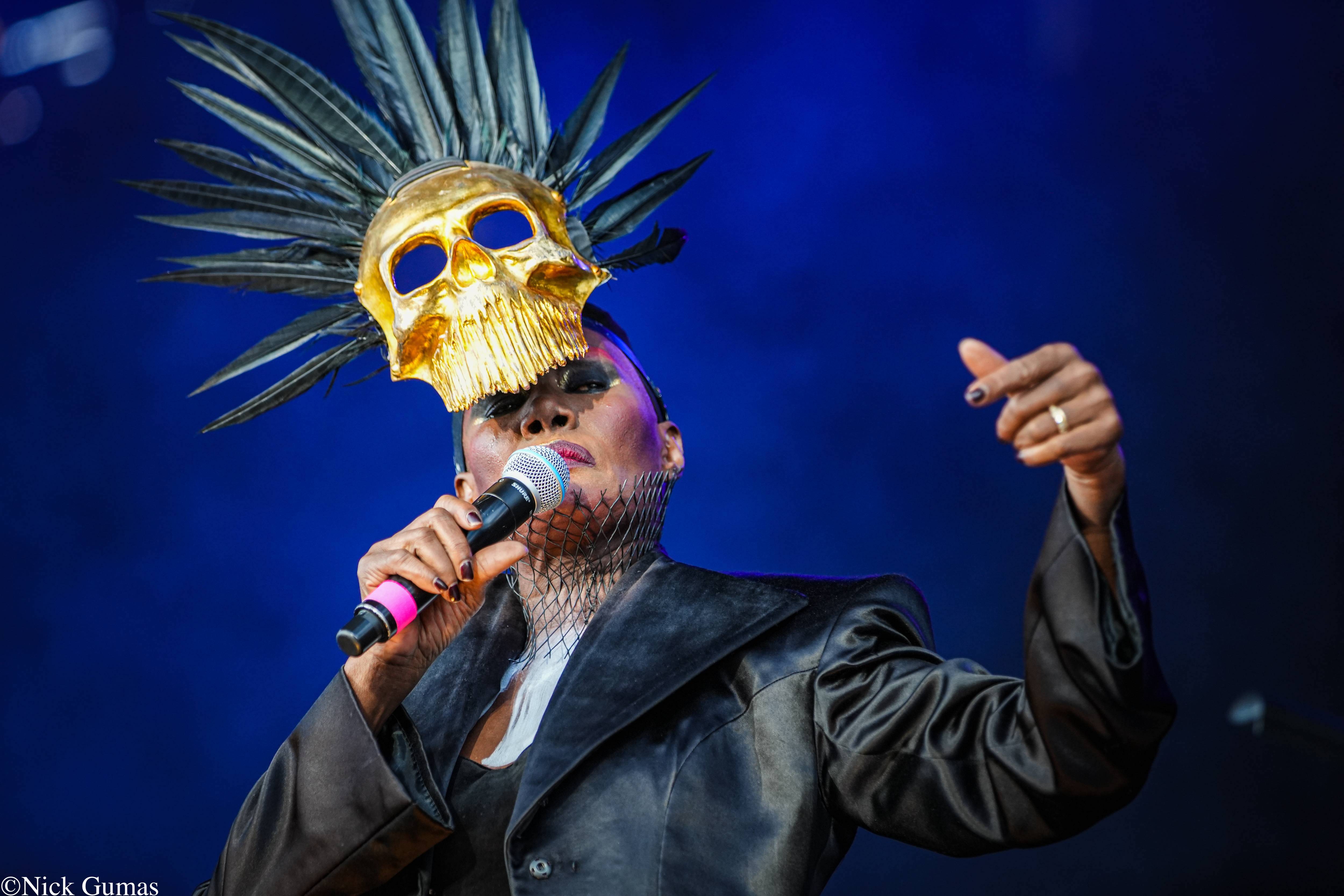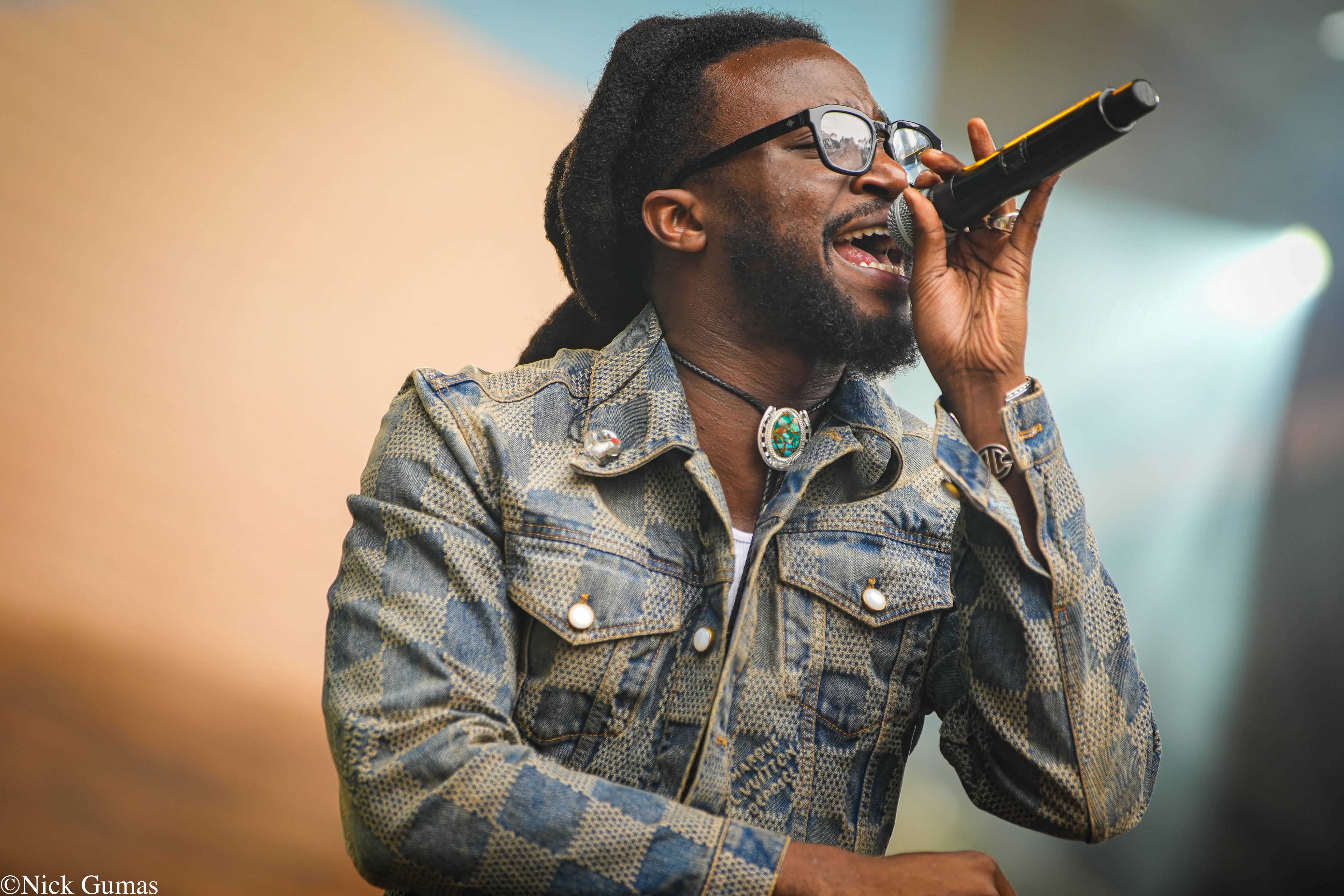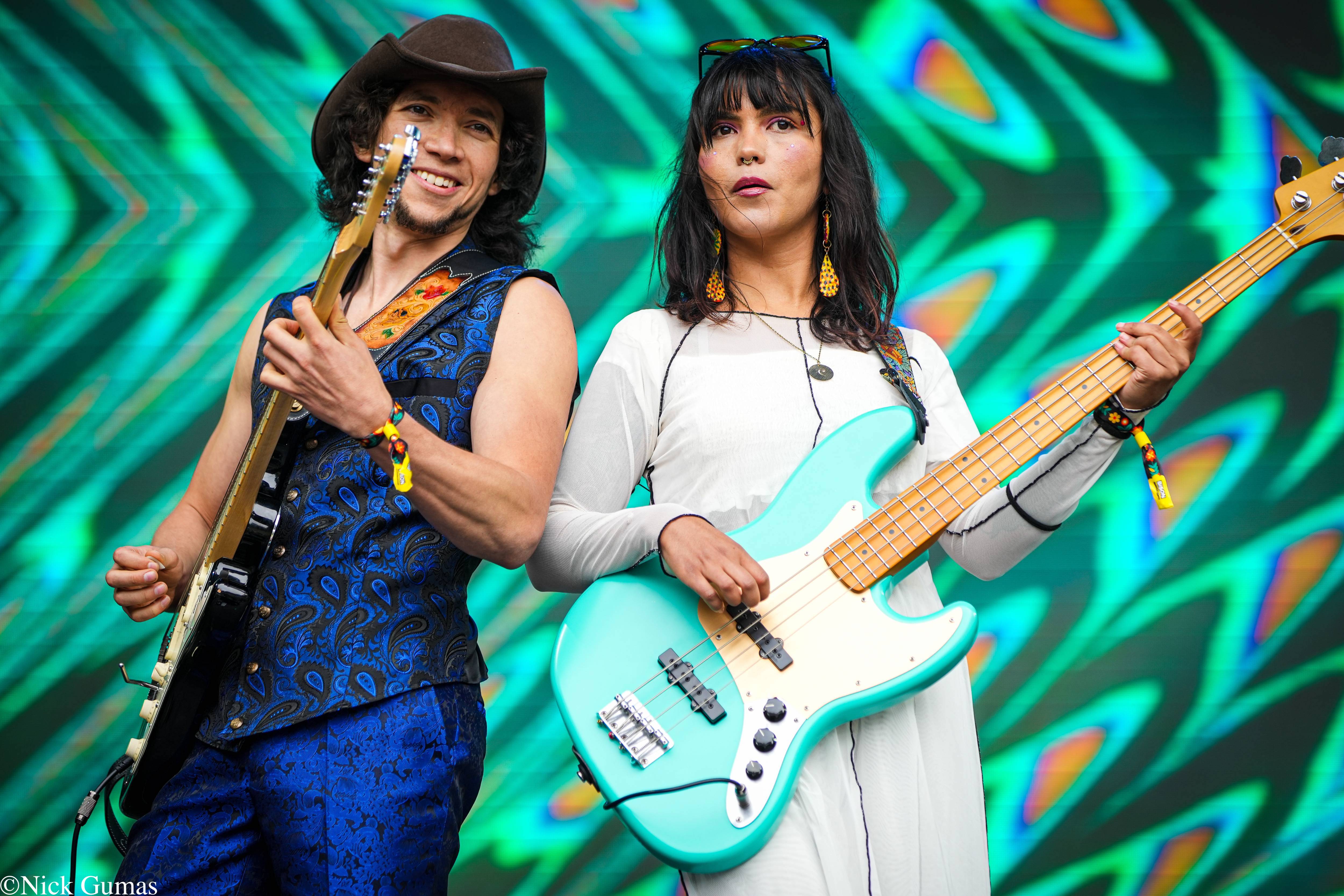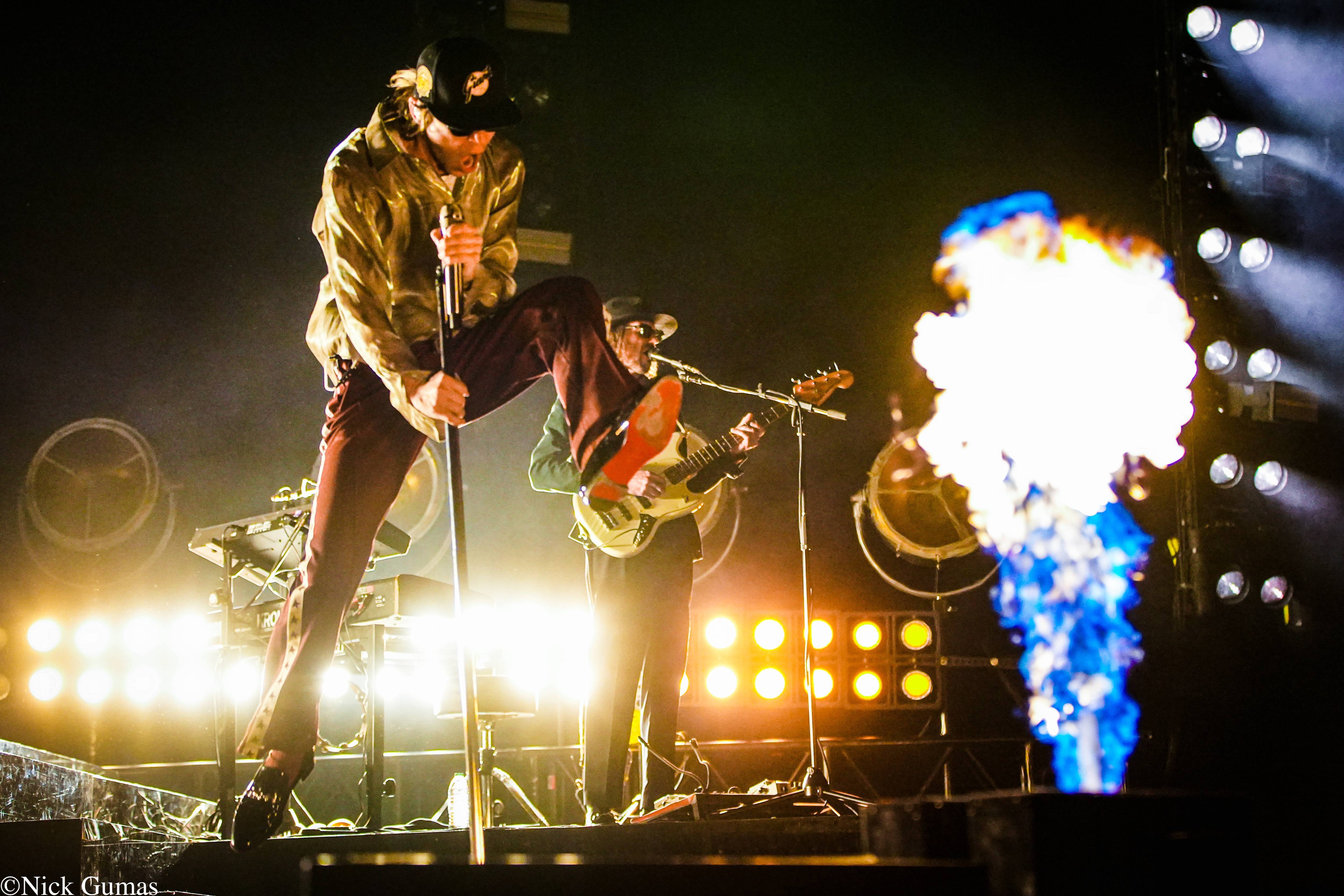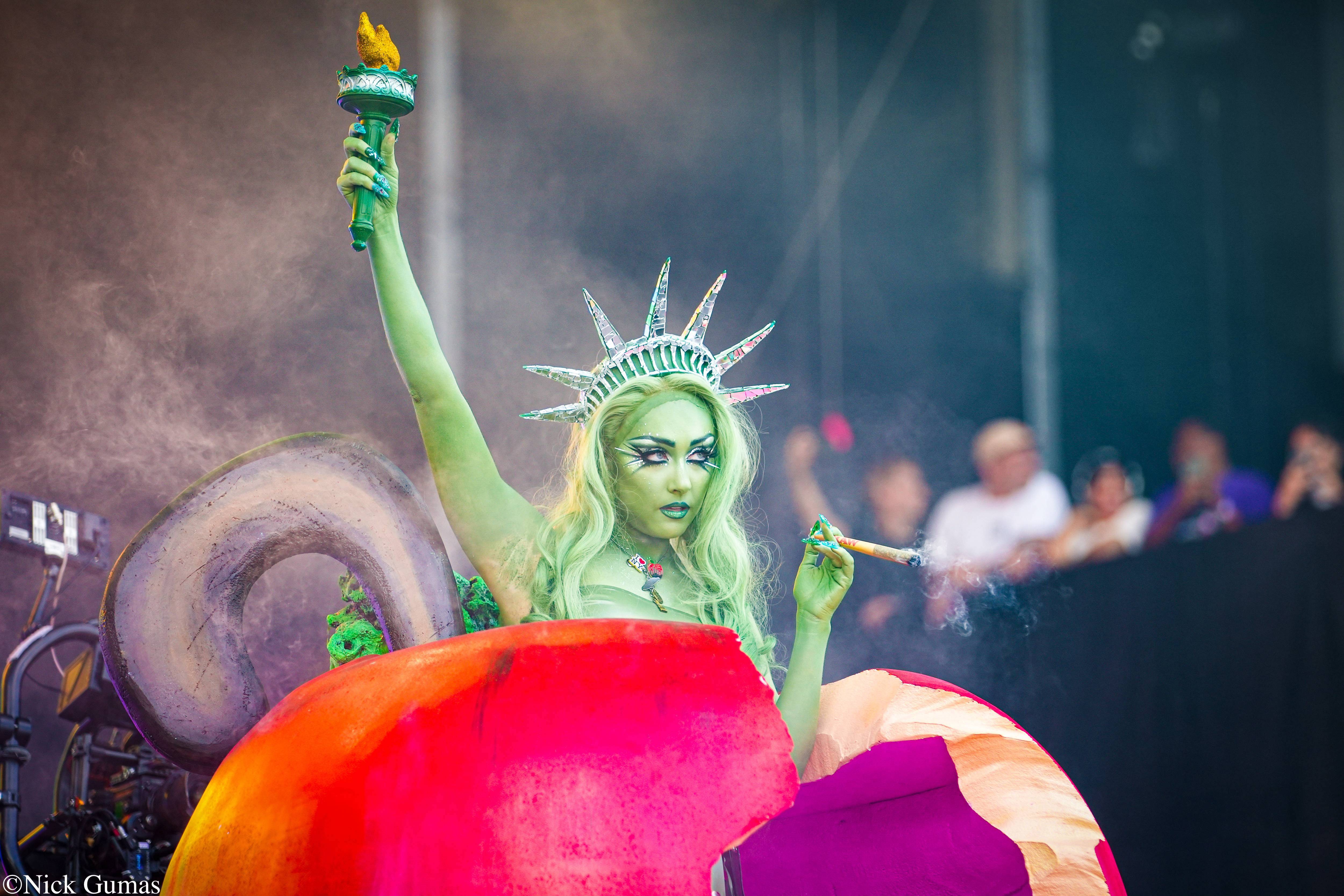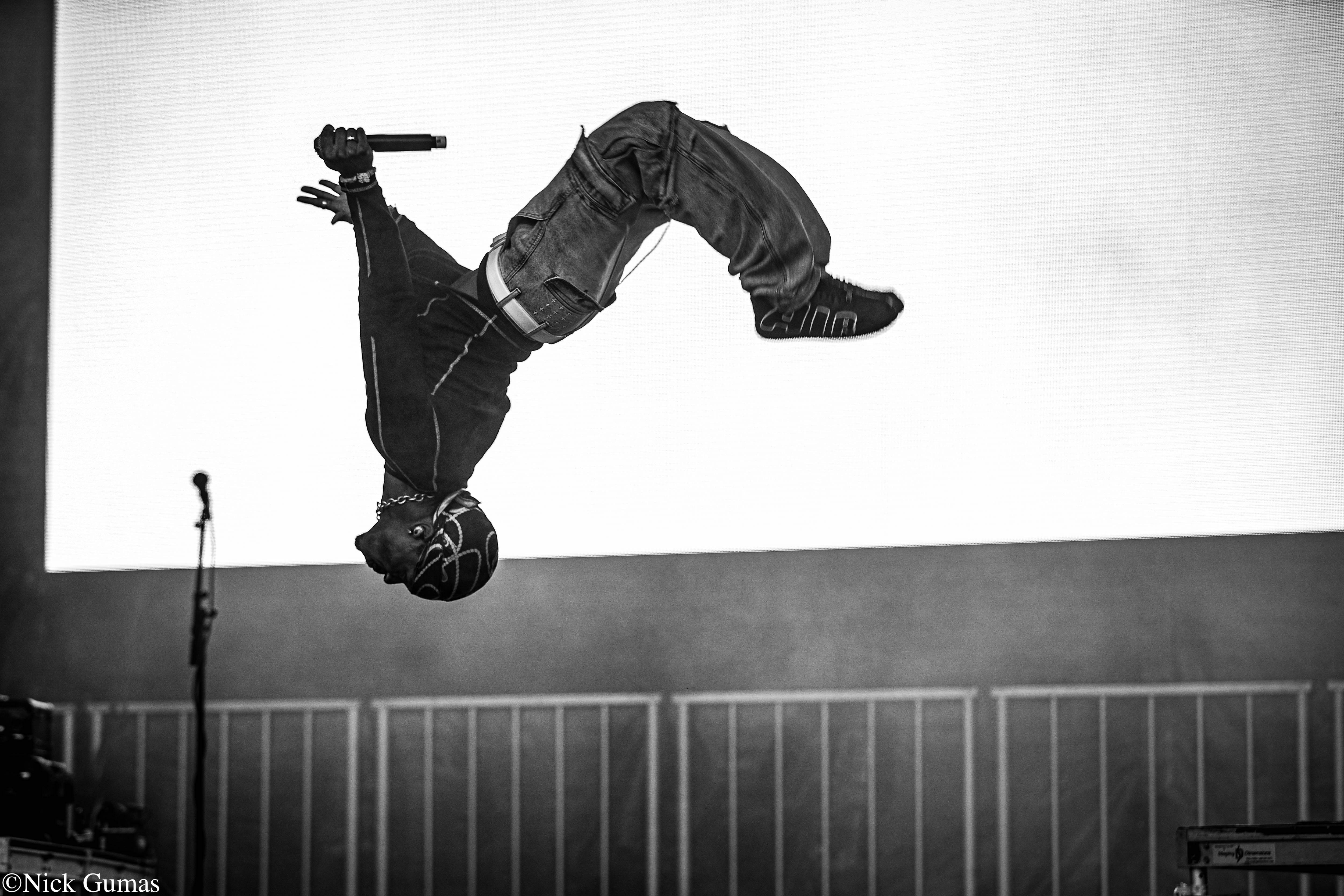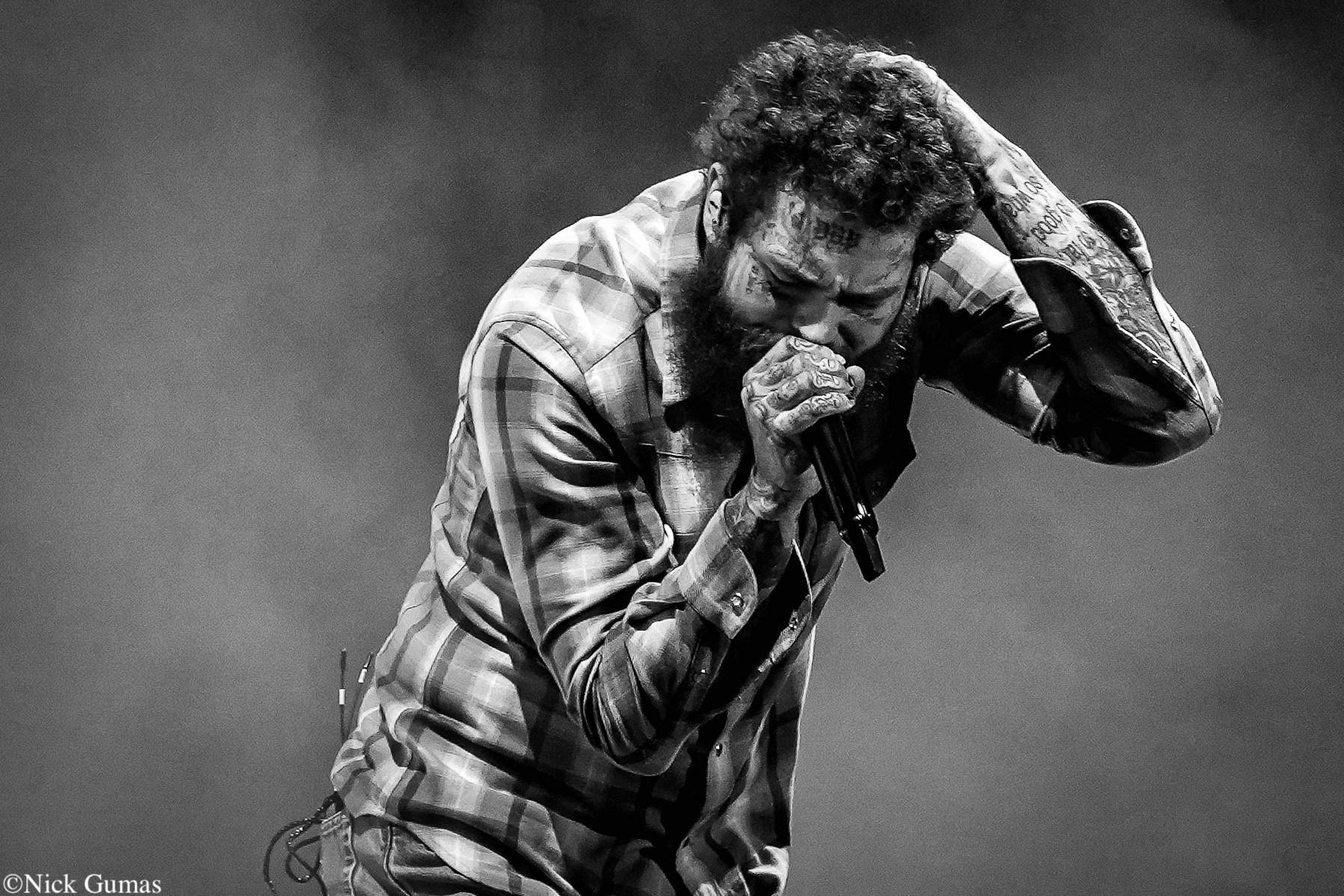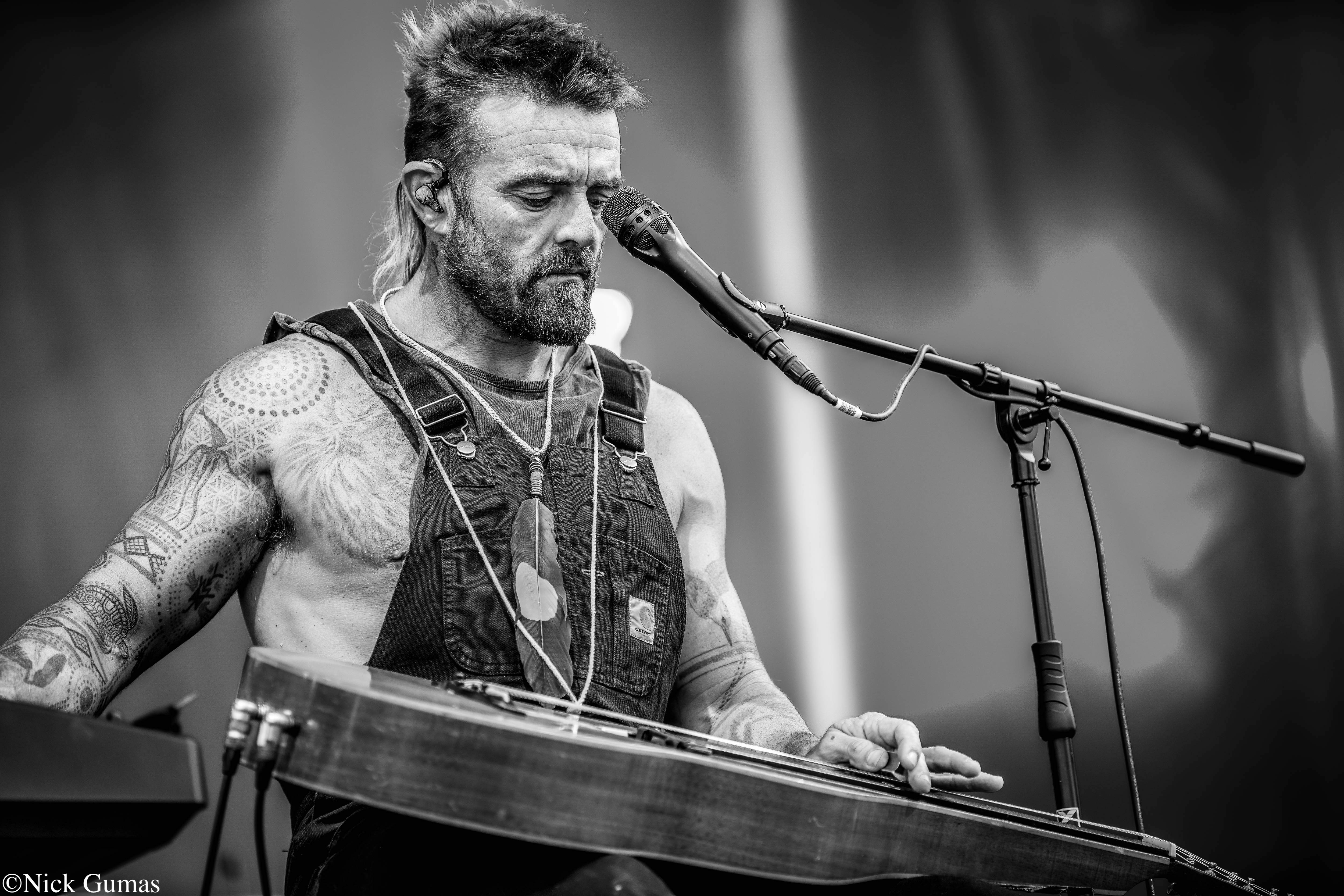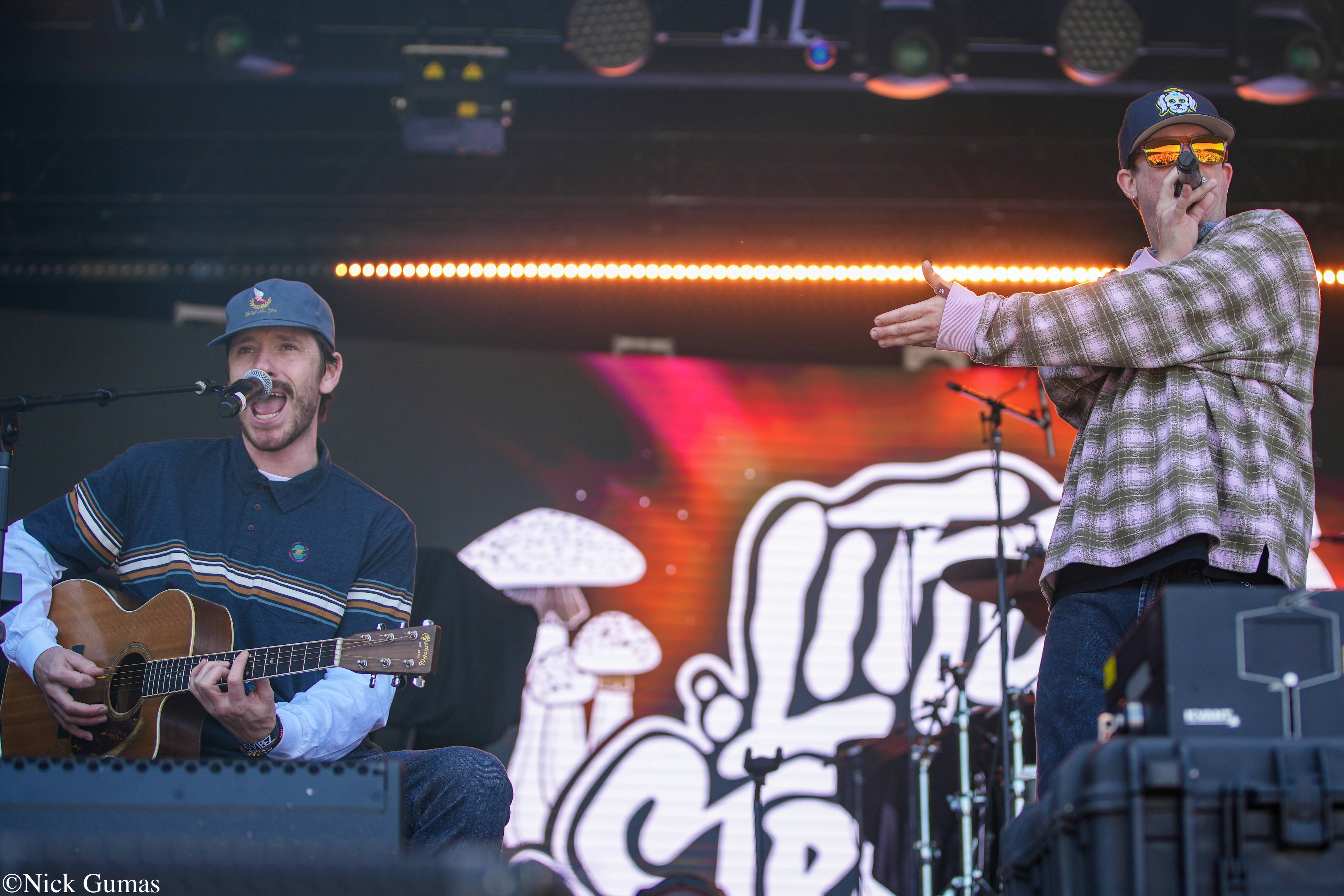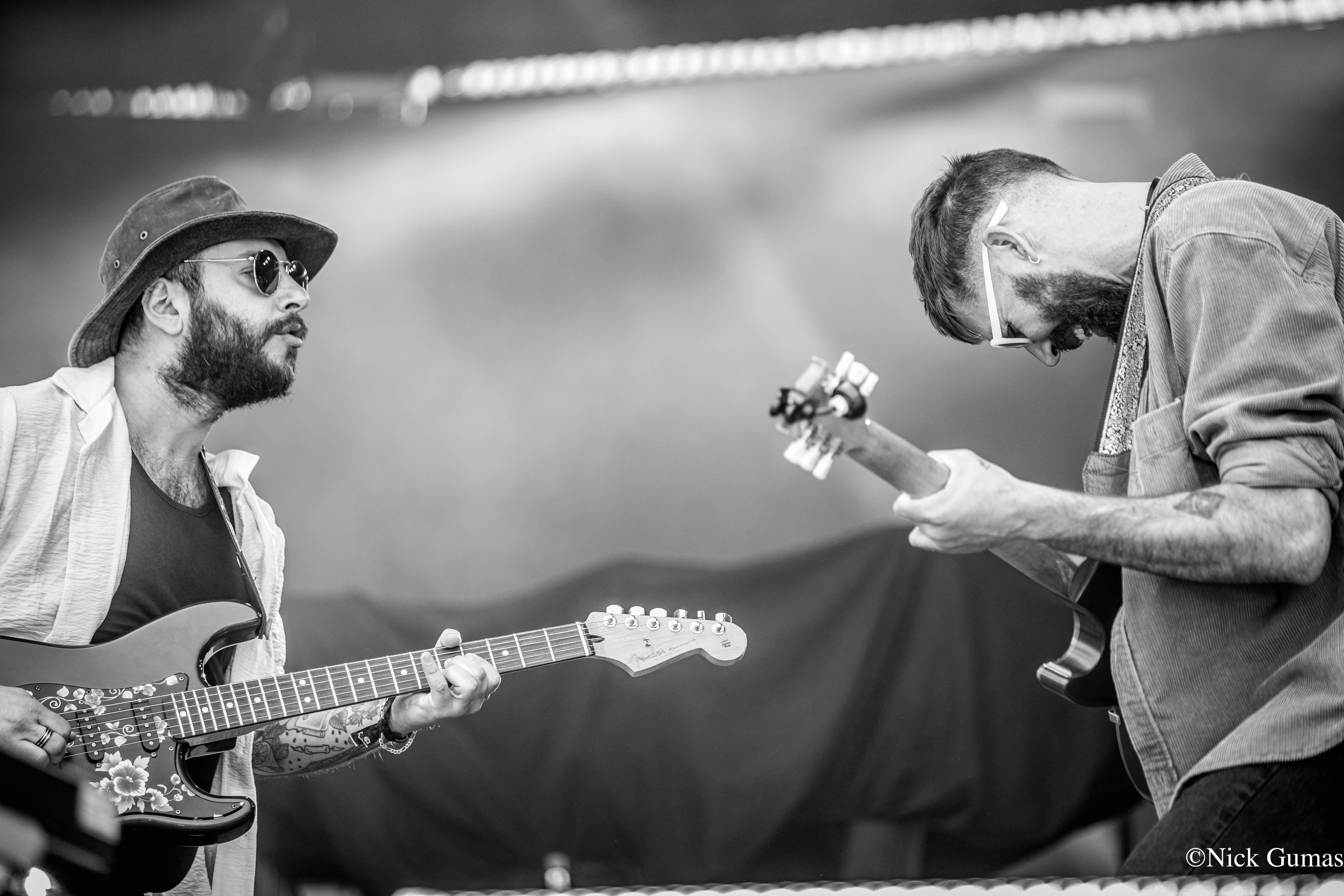Xiuhtezcatl Martinez is truly a person who lives beyond boundaries. An activist as much as he is an artist, his mission has brought him everywhere from the stage, to the courtroom, to late night television appearances, and there seems to be no audience he cannot reach with his message as he continues to use his platform for more than just a means to further his own growth. His lyrics and his everyday vernacular are blunt and at times transcendent in unexpected ways, but his passion for everything he does is ultimately undeniable.
Meeting Xiuhtezcatl was a humbling experience, to say the least. A man who is optimistic yet serious about the kind of world he believes we can all hope to live in one day, he inspires everyone he meets to live life a little more consciously. Grateful Web took full advantage of this opportunity to speak with him about wide array of topics from the presidential candidate he plans to endorse in the upcoming election, the mentors who have helped him along the way, and his highly publicized lawsuit with the Earth Guardians against the current government administration that may perhaps be a bit more bipartisan than some might believe.

Grateful Web: How does it feel to be at the 10th anniversary of Cali Roots? Where do you see it’s place in reggae history?
Xiuhtezcatl Martinez: Man, it feels like home, like for real. Last year was our first time at Cali Roots. It was straight family vibes. My boy Nahko who I’ve been touring with, he pulled up from Bottlerock, and he pulled up last minute and hopped up on our set, so already we’re creating a little bit of a different energy than people were expected of us, we had a bunch of people at our set, early morning slot, second artist to perform on the Cali Roots stage, and for me the experience has been seeing the evolution of something that is more than just reggae, but placing a landmark in the culture of music, and Cali Roots for me has been something that is building a tribe, building a family, and like Arizona Roots, this is their first year out there and we were invited out to play that, and we headlined one of the stages there so I just feel the growth and I feel the evolution, and it’s powerful.
GW: Since your last Cali Roots performance at Cali Roots, you have done tours with industry powerhouses such as SOJA, Twiddle, and Collie Buddz. What have you learned in your experiences with these artists?

XM: Touring with reggae artists has been a blessing. The first tour I ever went on, before Cali Roots, actually, was with The Late Ones and Nahko, and it was straight Ohana, such family. Then touring with SOJA was a whole other experience, and I think that was the deep reggae vibe. The audience every single place were reggae head people and the energy and the message translated. We as hip hop artists can relate to the culture of reggae a lot because a lot of it is about the vibe and the story that we can tell, mores o the energy that we can convey, so I think I have grown a lot from these tours and I think looking back at how much I’ve grown in the last year, I was here with my two homies on drums, guitar, and violin, and this year we have a whole band, my sister is singing with us, it’s a whole level up. The audience was probably double as full as it was for our set at the same time, I see a lot of growth and evolution on our path, and I see that parallel in that growth to the Cali Roots family.
GW: You have often said that you don’t need to be a Politician to prompt change. What does that mean to you, how have you seen this to be true in your advocacy, and how do you hope to use your platform to inspire change in the future?
XM: I think people relinquish their power. A lot. People give up their power and feel powerless and complain about being powerless without adequate effort to reclaim it. I see that a lot when I hear people say stuff like “voting doesn’t matter,” “Politicians are all corrupt,” “fuck the government.” And that is all energy toward a political system without intention of creating impact, and it’s also that ideology that we need to be in places of political power to create influence. Everybody always tells me, “hey kid; you should run for president.” And I’m like “Fuck that, I’m trying to be an artist, I’m trying to inspire people with my music.” Tupac Shakur, John Lennon, The Grateful Dead, The Beatles, like look at these legends right here, they inspired, shifted, and moved culture, they made waves. Michael Jackson, Nipsy Hustle, the list goes on. As an artist and an activist, an advocate and a spokesperson for my generation, it’s like breaking down those walls so that creating change isn’t an eternal use of energy, or something for somebody else or for Politicians or for activists or for someone else but something for people. It’s about all of us. We all have ownership in our futures, we all have ownership in our communities, and we have a responsibility to act upon that to create what we know is possible.

GW: Have you decided which political candidate you’re endorsing in 2020?
XM: Bernie Sanders, Baby. Bernie 2020, that’s the vibe from me. I’m looking at climate policy; I’m looking at a holistic approach to understanding climate change as an issue that effects and connects everything in our culture. Our economy, our politics, our education, our access to food, our distribution of wealth, social justice, Bernie has a lot. Bernie has been championing for the people since before he was running for mayor, and he’s like me, he started when he was young, and he started getting involved in political shit, and he was getting arrested at protests. He’s grassroots, and he’s for the people. That’s what I represent and what I respect as a person and as an artist, so for me, Bernie is the guy, and I feel the message, and I feel the story, and it’s not “me” its “us.” That whole vibe that he’s carrying on his campaign, I fuck with that. I fuck with the idea of having a candidate who has consistently shown up over and over again for what they speak on and walk their talk.
GW: Today’s rainy California weather in May has me thinking a lot about global climate change, in that spirt do you have an update on your current lawsuit against the US Government as a part of the Earth Guardians?

XM: In 2015 myself and 20 other plaintiffs sued the Federal Government on the basis of there was a violation of the constitutional rights of young people in this country, violating our rights to life, liberty, and property. Because the government has known about climate change, about the fossil fuel’s contribution to climate change for the last 50+ years, evidence shows this, and they have not just failed to act but have actively supported and perpetuated the industry that has created this crisis, this whole case is about demanding that the federal government and the courts enforce the federal government in implementing a climate recovery plan, an actual strategic solid plan to address our climate crisis, to bring down our fossil fuel emissions, to transition our energy source, and it’s really ambitious and it’s crazy in a lot of ways. Lots of political and legal analysts have said that there’s no way it’s going to go anywhere, and after four years of struggling and battling through the court system from the Obama administration to the Trump administration, we are now going to trial. June 4th we have a trial date, and this is something that people thought was impossible. This is the trial of the century because it deals with the most important issue that connects all of humanity. So we’re still moving, we’re still fighting, and I’ve been doing this since before I sued the government, I’m going to do it until after this case is resolved, and it's beautiful to see the support and love around that.
GW: How do you feel about your legal team?
XM: The team is fucking balling out. Like so incredible, the other plaintiffs, the other youth that are suing the government are beasts, they all have such powerful, incredible stories. Our attorneys are just tearing up these industry attorneys like no other. Julia Olsen is one of my heroes. She’s our lead attorney in this case, and I’m so inspired by how powerful she is. She’s got it on lock. With the evidence, with the information, with the heart, with the passion, with the legal know-how, all that. She’s got it on lock; her rebuttals are fire. So I’m very confidant in our team.

GW: Jumping back into your music, this year you released your first full-length album. What message do you think you were able to deliver with a long-form record that you had not been able to previously?
XM: This first album I put out, it’s called “Break Free,” and it was very much so a reflection of my life up until that point. As an activist, as an indigenous person, moving through these different worlds of having family that were different immigrants from Mexico, looking at all these different social issues that surround and connect my life, and reflecting that reality through music. It was very much so a storytelling project, and I think in its full length and its existence has allowed me to create an installment in my musical legacy that has allowed me to create the story of who I am up until I released that project. So people don’t have to ask a question, if they listen to the project then they know that story. It felt like a lot of weight off my shoulders, and now I feel freer to create beyond just the story of my activism, and now I can focus on my own story, so the next project is going to be on another level, I’m so excited to share it with the world.
GW: It is no secret that Nahko has been one of your biggest advocates, mentors, and friends over the last few years. Would you mind speaking to that relationship for a moment?

XM: Nahko is my son. I love Nahko. I was 12-years-old when we met. I pulled up late to this panel at a festival in Colorado called the Arise Music Festival, and I was late, Nahko had the whole long hair thing going in the back, shaved on the sides, whole vibe. And like, I just spoke my truth and told my story, and he was like “Damn! This kid’s got knowledge.” And we exchanged contact information, then he opened up for somebody at Red Rocks, and I came to that show, and I saw him there, and we grabbed breakfast, and then it just kind of evolved into a brotherhood. He is definitely like a big brother figure, we started making music together, then we made the song “Young” together that was on my last album that went really far and has inspired a lot of people, we actually put it out right around this time last year, a couple weeks before Cali Roots, an pushed it, promoted it really hard at the festival and everybody really felt it and loved it. So I have now toured with Nahko twice, we’ve played like 40 shows together around the country. Every time he’s in my city I’m getting up and rocking with him. It’s a beautiful support to have mentors and to have role models in this music industry that are speaking truth as well and that are also on that same wavelength of making art that matters.
GW: What’s next for Xiuhtezcatl?
XM: We just dropped a single called “Cell Phone,”’ that shit bumps. Play that loud, play that one on your sound system, send it to your grandma, teach her how to download it on her phone. Spotify, Apple Music, all that. “Cell Phone” by Xiuhtezcatl, X-I-U-H-T-E-Z-C-A-T-L. That’s kind of a prelude to some of the singles that we’ll be dropping for an EP that will be coming out this summer, I’m playing two shows in Colorado in June, June 21st in Bolder, June 22nd in Colorado Springs, four shows in Cali in July, from San Diego to the Bay, so pull up to the shows. You can find everything on my website, Xiuhtezcatl.com, hit me on social media, “Cell Phone” is out now, tours, more shows, my first headlining shows in all these markets, so I’m incredibly excited to be continuing the momentum from festivals like these, and continue spreading the love, and continue spreading the message. It’s going to be a really big year for a lot of reasons.

GW: With your recent developments, I’m sure you’ve had every question in the book thrown at you, but what’s one part of the band that you don’t get prompted to talk about as much as you would like?
XM: I think the part of my come up that’s a little bit less known is how rooted everything I do in the world is in ceremony. How rooted all of my work and everything I do in the world is rooted in my ceremonial connection to my peoples. My family is Meshika, indigenous from Mexico, and a lot of people know that. I have that heritage, my dad’s Mexican, I rap about it, I talk about it, but I grew up in not just the ceremonies of my people, but the ceremonies of (other) peoples’, and sweat lodges and at sun dances, and really embraced and held by the ingenious community here on Turtle Island, and that has had such a pivotal influence on my outlook on the world and how I perceive my own indigenousness and my own identity, and how I carry myself. Now as I see as I go out into the world and am doing more work with other indigenous communities, working to really bridge this gap and see how do we bring people together in a really significant way, and as a Mexican youth, a lot of us don’t associate ourselves with anything else other than being Mexican, but truthfully, if our skin is brown it’s because our ancestors were indigenous to a certain extent. So for me to be able to make music in Spanish, that’s an important part of my journey to find the balance of that piece of who I am. And with the organization the Earth Guardians, we’re launching a native youth training of 50 native youth from around Turtle Island to join together in learning leadership and development skills, talking about decolonization and environmental justice in this world, building this community, and bringing people together around connecting native people. You look at Standing Rock, you look at all the social movements that have been happening, there is a very significant need for the representation of those voices to be heard and to be present in these conversations in these communities at these festivals, so that’s something I’m very, very passionate about too have carried with me my entire life and now to put it into action in the real world.






